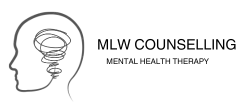
Embarking on a journey towards mental health and personal growth can feel both daunting and empowering. Taking the step to seek counselling is a courageous decision, and your first session marks the beginning of a transformative process. If you’re feeling uncertain or nervous about what to expect, rest assured that you’re not alone. Here’s a guide to help you navigate your first counselling session with confidence and clarity.
1. Warm Welcome and Introduction
As you walk into the counselling space, you’ll be greeted warmly by your counsellor. The first session typically begins with an introduction where you’ll have the opportunity to get to know each other. Your counsellor will likely ask you to fill out some paperwork, including intake forms and consent documents (if this hasn’t already been completed), to ensure they have a full understanding of your background, concerns, and goals.
2. Establishing Trust and Confidentiality
Confidentiality is a cornerstone of any counselling relationship. Your counsellor will explain their approach to confidentiality and the limits to confidentiality, such as situations involving harm to yourself or others. This conversation is essential for building trust and creating a safe space for open and honest communication.
3. Exploration of Concerns and Goals
During your first session, your counsellor will invite you to share what brings you to counselling and what you hope to achieve. This is your opportunity to express your thoughts, feelings, and concerns without judgment. Your counsellor will listen attentively, ask clarifying questions, and work with you to identify your goals for therapy.
4. Building Rapport and Connection
Building a strong therapeutic relationship is key to the success of counselling. Your counsellor will aim to create a supportive and non-judgmental environment where you feel heard, understood, and respected. They may share a bit about their background and approach to therapy to help you feel more comfortable.
5. Collaborative Exploration and Assessment
Once your concerns and goals have been identified, your counsellor will guide you through a collaborative exploration of your thoughts, emotions, and experiences. This may involve asking reflective questions, exploring patterns of behaviour, and identifying strengths and resources. Together, you and your counsellor will begin to develop a deeper understanding of your unique needs and challenges.
6. Discussion of Treatment Plan and Expectations
Towards the end of the session, your counsellor will discuss a treatment plan tailored to your specific goals and preferences. This may include the frequency of sessions, therapeutic approaches to be used, and anticipated outcomes. You’ll have the opportunity to ask questions, provide feedback, and express any concerns you may have about the counselling process.
7. Closing and Reflection
As the session comes to a close, your counsellor will invite you to reflect on your experience and discuss any insights or observations that emerged during the session. They may offer some homework assignments or strategies to practice between sessions to support your progress. Finally, you’ll schedule your next appointment and leave feeling empowered and hopeful about the journey ahead.

